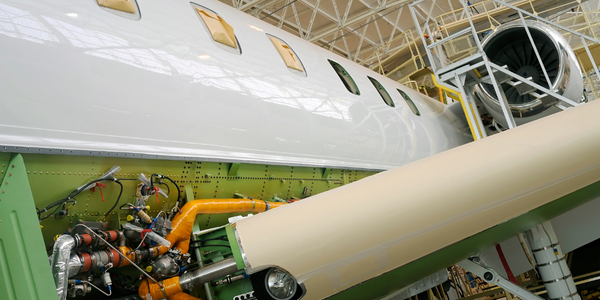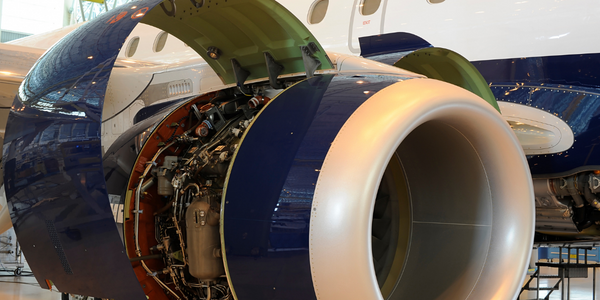下载PDF
Asphalt Dryer Optimization: Astec's Energy Saving Solution with Altair EDEM
技术
- 传感器 - 液体检测传感器
- 传感器 - 温度传感器
适用行业
- 航天
- 生命科学
适用功能
- 产品研发
用例
- 行为与情绪追踪
- 实验自动化
挑战
Astec, Inc. 是一家连续和间歇式热拌沥青设备制造商,面临着开发更节能的滚筒干燥机的挑战,该干燥机可以以不同吨位处理各种骨料类型。沥青生产中的干燥过程是能源密集型的,在涂上液体沥青之前,需要在转鼓干燥机中干燥每小时数百吨的湿集料岩石。这个过程确保沥青与岩石粘合。在滚筒内部,骨料通过附着在内表面上的称为刮板的形状的勺子保持运动,从而产生下落材料的“面纱”。更好的遮盖作用可改善热传递并加速干燥,从而减少燃料消耗。然而,直接观察运行中的滚筒非常困难,这使得尝试新的飞行设计变得具有挑战性。
关于客户
Astec, Inc. 是 Astec Industries 公司家族的成员,位于田纳西州查塔努加。该公司是一家连续式和间歇式热拌沥青设备及相关设备和服务的制造商。 Astec 致力于利用技术和创新来改进其产品和服务。该公司已将 EDEM 集成到其设计流程中,并将其视为工程师的宝贵工具。 Astec 对能源效率和流程优化的承诺带来了重新设计滚筒干燥机以提高性能并降低能耗的挑战。
解决方案
Astec 部署了 EDEM(一种离散元法 (DEM) 软件),为观察和分析飞行设计和操作参数对物料流的影响提供虚拟环境。 Astec 将滚筒干燥机的 CAD 文件导入 EDEM 并生成骨料岩石 DEM 材料模型。经过模型校准后,EDEM 准确模拟了飞行过程中岩石升起和释放的动力学。使用 EDEM 的分箱功能计算给定体积中的岩石数量,Astec 可以量化给定滚筒部分中隐藏骨料的密度。通过对不同飞行设计的性能进行虚拟比较,Astec 得出了一种新的飞行设计,称为“V Flight”,它优化了覆盖过程中岩石的分布,从而改善了骨料干燥过程。
运营影响
数量效益
相关案例.

Case Study
Airbus Soars with Wearable Technology
Building an Airbus aircraft involves complex manufacturing processes consisting of thousands of moving parts. Speed and accuracy are critical to business and competitive advantage. Improvements in both would have high impact on Airbus’ bottom line. Airbus wanted to help operators reduce the complexity of assembling cabin seats and decrease the time required to complete this task.

Case Study
Aircraft Predictive Maintenance and Workflow Optimization
First, aircraft manufacturer have trouble monitoring the health of aircraft systems with health prognostics and deliver predictive maintenance insights. Second, aircraft manufacturer wants a solution that can provide an in-context advisory and align job assignments to match technician experience and expertise.

Case Study
Aerospace & Defense Case Study Airbus
For the development of its new wide-body aircraft, Airbus needed to ensure quality and consistency across all internal and external stakeholders. Airbus had many challenges including a very aggressive development schedule and the need to ramp up production quickly to satisfy their delivery commitments. The lack of communication extended design time and introduced errors that drove up costs.

Case Study
Developing Smart Tools for the Airbus Factory
Manufacturing and assembly of aircraft, which involves tens of thousands of steps that must be followed by the operators, and a single mistake in the process could cost hundreds of thousands of dollars to fix, makes the room for error very small.

Case Study
Accelerate Production for Spirit AeroSystems
The manufacture and assembly of massive fuselage assemblies and other large structures generates a river of data. In fact, the bill of materials for a single fuselage alone can be millions of rows of data. In-house production processes and testing, as well as other manufacturers and customers created data flows that overwhelmed previous processes and information systems. Spirit’s customer base had grown substantially since their 2005 divestiture from Boeing, resulting in a $41 billion backlog of orders to fill. To address this backlog, meet increased customer demands and minimize additional capital investment, the company needed a way to improve throughput in the existing operational footprint. Spirit had a requirement from customers to increase fuselage production by 30%. To accomplish this goal, Spirit needed real-time information on its value chain and workflow. However, the two terabytes of data being pulled from their SAP ECC was unmanageable and overloaded their business warehouse. It had become time-consuming and difficult to pull aggregate data, disaggregate it for the needed information and then reassemble to create a report. During the 6-8 hours it took to build a report, another work shift (they run three per day) would have already taken place, thus the report content was out-of-date before it was ever delivered. As a result, supervisors often had to rely on manual efforts to provide charts, reports and analysis.






